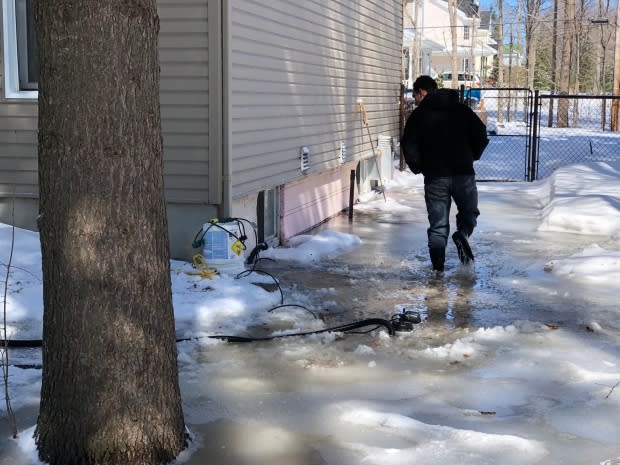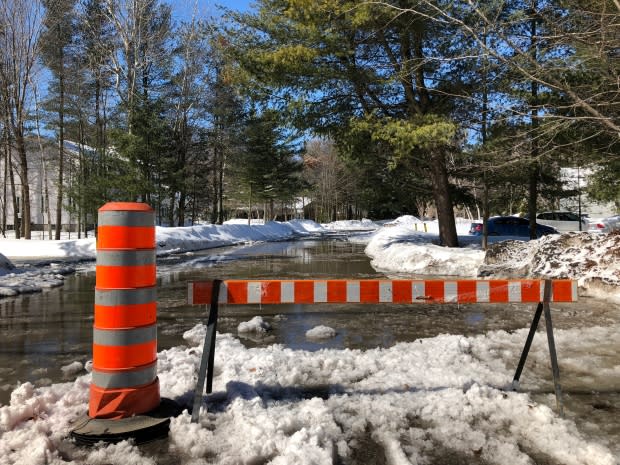Floodwaters creep up on Saint-Lazare residents as spring thaw chases winter away
Rising waters, wet basements and submerged roadways are all-too familiar sights for residents of Saint-Lazare, Que., situated just west of Montreal in an area prone to flooding.
This week's thaw, rain and snow are causing water accumulation up to two feet high in some places, prompting the local fire department to action — assisting residents in their fight against rising floodwaters.
"This is the worst it's been in years," Keith Bayer told CBC. "I've never seen it like this. Now, I'm trapped in my driveway and I can't get out."
Bayer lives on Stallion Street and the water is not far from his doorstep. If it inches just a bit higher he'll be in big trouble.
His entire community is on alert and he's not the only one worried about what's to come as the region bids farewell to winter and says "hello" to spring flooding.

At Steffan Marshall's home, not far from Bayer's, the water was trickling closer and closer to his home's foundation Saturday.
"We just finished our basement a couple years ago," he said. "[We] put a lot of money into it."
Marshall has pumps working and he put sandbags around the basement windows as soon as he saw water levels begin to rise.
Over the summer, he plans on packing dirt down on his property, the lowest on the street, in an effort to keep rising water away. His property is at the lowest point on the street.

Tara Caza, another resident, said it's time for government officials to step up to the plate and do something about the situation.
"This is not a 'today' problem. This is a long-term problem and they're going to have to address it," she said.
Daniel Boyer heads the local fire department in Saint-Lazare. The city relies on ditches and dry wells for drainage, he said, but this winter's ice and snow has filled those ditches up, leaving the water nowhere to go.
The city has been clearing off its drains and working to free up the wells in an effort to help drain the water away from homes.
Boyer blames climate change and says "every city will have, at one point, to rethink what we're doing."

